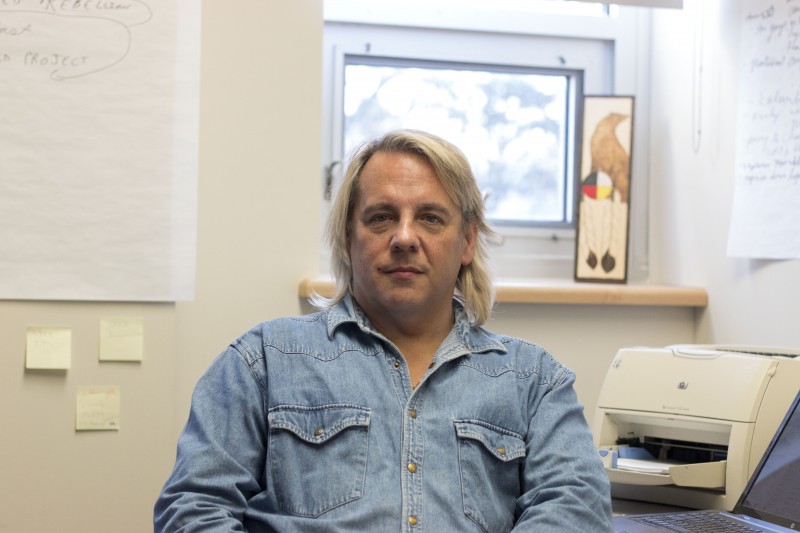Support available for creative writing through Laurier’s Writer-in-residence


The Edna Staebler Laurier Writer-in-residence is a three-month residency program at Wilfrid Laurier University for accomplished Canadian writers.
Drew Hayden Taylor is a fiction writer and playwright and is currently filling the role this year.
In this role, the writer focuses on their work as well as community engagement, which includes holding public talks, workshops and conducting one-on-one sessions with students and beginner writers.
The writer must conduct nine to 12 office hours per week where students can come in and get consultations on their writing.
“For the Edna Staebler Writer-in-residence we split it a little differently, it’s 60 per cent their own work and 40 per cent working in the community,” said Tanis MacDonald, associate professor in the department of English and film studies, and chair of the Staebler Writer-in-residence selection committee.
Taylor is currently working on a number of different tasks for his own writing.
His 29th book will be released in October, which is a collection of native-themed science fiction stories.
Taylor has also been commissioned by the National Arts Centre in Ottawa to write a play about Sir John A. MacDonald for the 150th anniversary of Confederation.
“A lot of people think it’s difficult to make a career from the world of prose and the world of writing and that is, in some cases, true. But a lot of people have this belief that successful, known writers are dead. I’m out here being a presence,” said Taylor.
Taylor said he is a representative of two communities: the successful writing community and the successful indigenous community.
“My stories take place in a version of my community, so I think I provide a face of two different communities: The aboriginal community and the arts community,” he said.
After spending almost 30 years as a writer in the Canadian industry, Taylor is at Laurier to provide guidance and counsel to students and community members.
“People can come in who want to explore the world of writing but don’t know how. They can come in and chat, or having taken that first step, have written something, and go, ‘okay I’ve written it, now what do I do,’ ” said Taylor.
James Southworth, a consultant at the Writing Centre, said despite the fact that the Writing Centre focuses on academic writing, having a different resource that focuses on creative writing is valuable.
“I think it’s great that the Writer-in-residence program is here because it explores creative writing — whether it be fiction, or poetry, whatever it may be, it develops other skills, obviously more creative and often times more imaginative writing skills,” said Southworth.
The Writer-in-residence is a resource and is representative of a successful writer making a living. This position can relay practicalities such as who to know, who can critique work, how to get paid, etc.
“He’s a wealth of practical advice in terms of the business of being a writer, as well as advice about things like the creative process, how long it takes, and what kind of expectations people should have. I think students in the faculty of arts have taken the most advantage of the fact that he is here … but that doesn’t mean students from other faculties can’t come and see him,” said MacDonald.
“He’s here for the whole community.”
– With files from Safina Husein

